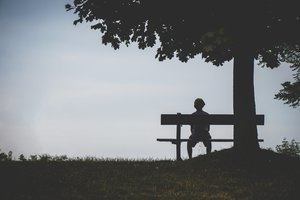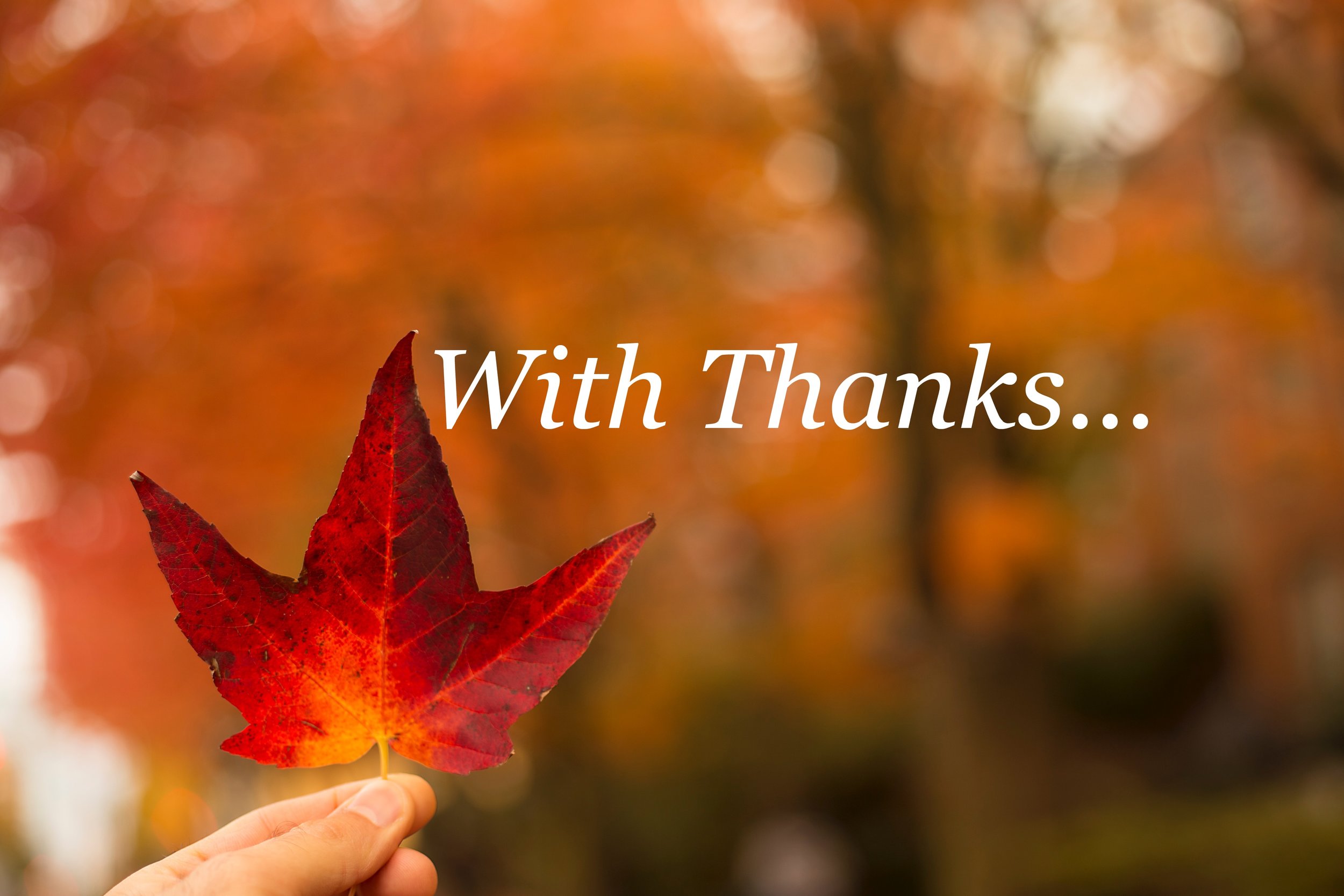From the 2018 series “With Thanks”
“I have heard of your faith in the Lord Jesus and your love toward all the saints, and for this reason I do not cease to give thanks for you as I remember you in my prayers.”
Let's talk about ice cream. Most folks have at least one or two favorite flavors of this dairy treat. What are yours? Do you like Rocky Road, Chocolate Chip, or Vanilla? Imagine it is a hot summer day and you have a double scoop of your fav-flavor in hand. That would be a pleasant experience for us to take, wouldn't it? It would be easy to enjoy. Our thanks would flow without much problem.
Now picture the same ice cream cone in hand. Instead of the heat, you are walking into a cold and driving wind. With snow blowing in your face, your body is freezing. How thankful would you be even for the best kind of ice-cream? It would be much harder to summon praise, wouldn't it?
So it goes with the people in our life. Some of them are like the choicest of delights. We enjoy their presence as they bring us joy. We are glad to have them at hand. Some are much harder to love. Sometimes surrounding conditions affect our gratitude. When our cold lips shiver, we don't want them anywhere near ice cream, nor do they naturally move in praise.
Whether others are easy or hard to appreciate, scripture invites us beyond surface emotions or automatic reactions. To be thankful for ALL the saints is to go beyond merely the saints we adore. To be grateful for ALL includes those "flavors" we don't like and never choose.
Aware of the issue of domestic violence within all communities, I need to clarify that abuse is NEVER acceptable. God does not want people to remain in relationships and interactions that harm physically, emotionally, or spiritually. Such situations are sinful and not sacred.
The person who is hurting us or constantly ridicules us or is actively working against us need not be a recipient of thanks. That would be self-destructive and remove authenticity from gratitude. It would be like insisting that a person with a tree-nut allergy eat cookies with walnuts. Scripture is a word of life, not sadistic captivity.
Beyond those who are 'bad' for us, are a group that we find adversarial. Maybe it is that our personalities clash. Or, perhaps, we are more alike than we care to admit and we are always competing for that last cookie.
What would it mean for us to give thanks for these folks? Would our effort of thanks change the way we interact with the ones we label 'rivals'? Would it open just a crack in the wall that separates us from loving them? Could a word of thanksgiving, however small it might be, be a tool of the Spirit for transformation? For difficult relationships? For us?
When we give thanks for those ‘hard to love’, we recognize the presence of God resides with them. They number among the saintly sinners of God by Christ's inclusion. If connected to God, then they too are a source of blessing. When we acknowledge that their existence is as much a blessing as our own, we enter a whole new level of grateful living that is as sweet and refreshing as our favorite flavor of ice cream on a hot summer's day.
Prayer:
God of ALL people, your image is present in everyone who lives on this planet. Some folks bear your image in such a way that it is easy for us to see. For them, O God, we return you thanks. Others make it harder. Barriers - some of which we have erected and fiercely maintain - separate us from them. Help us to look deeper. Strengthen us with imagination and courage so that we might include them in our prayers and thoughts of gratitude.
Through Jesus Christ, Amen.
Permission granted to share today's content with family and friends. Copyrighted 2018. Walt Lichtenberger
![54DE91F5-F5BC-449C-A443-5B0497776D40[1].png](https://images.squarespace-cdn.com/content/v1/5661ba24e4b054281a2bfd6f/1563978977288-XY0511G2TIQW004MDZ61/54DE91F5-F5BC-449C-A443-5B0497776D40%5B1%5D.png)





















